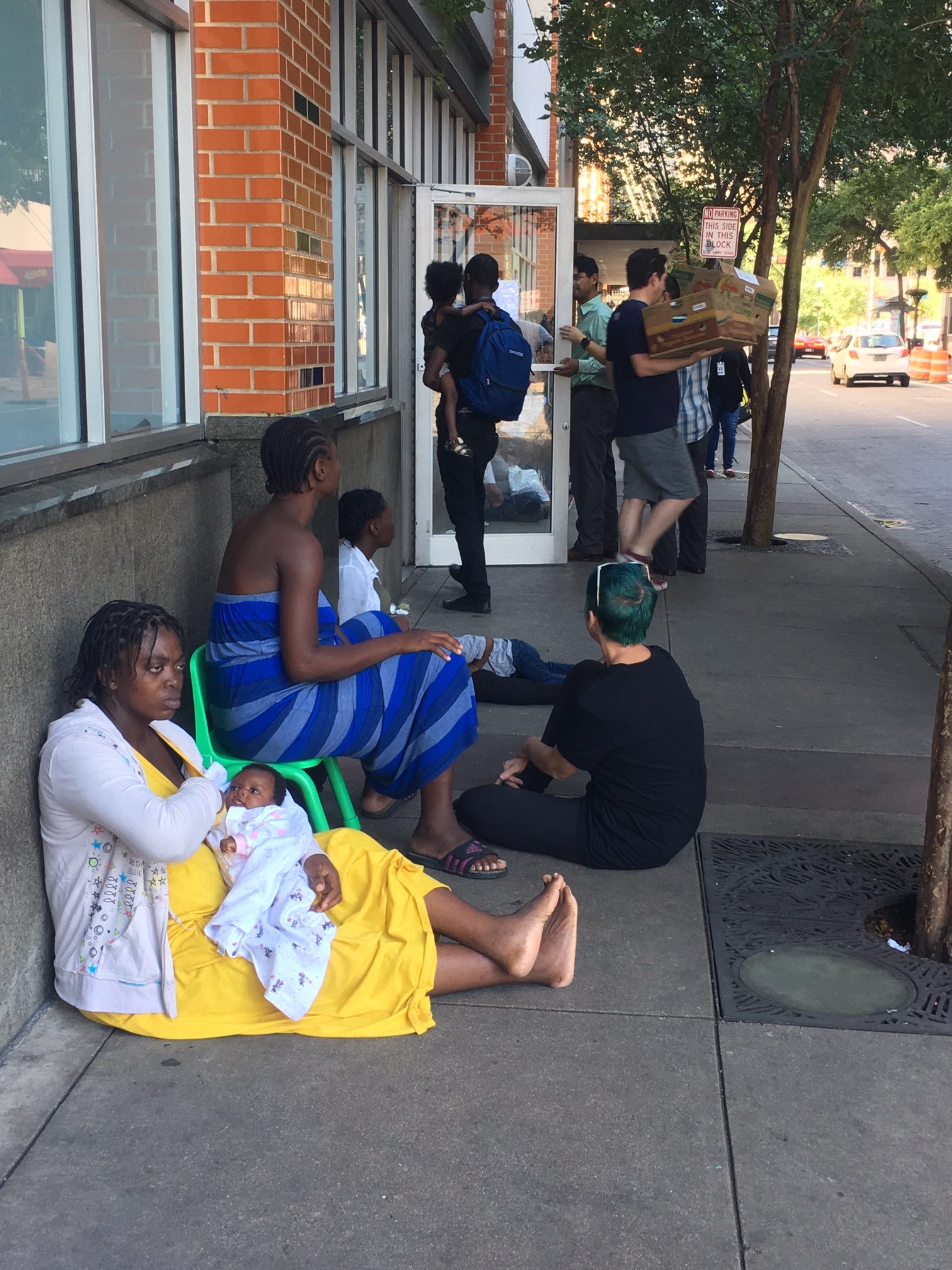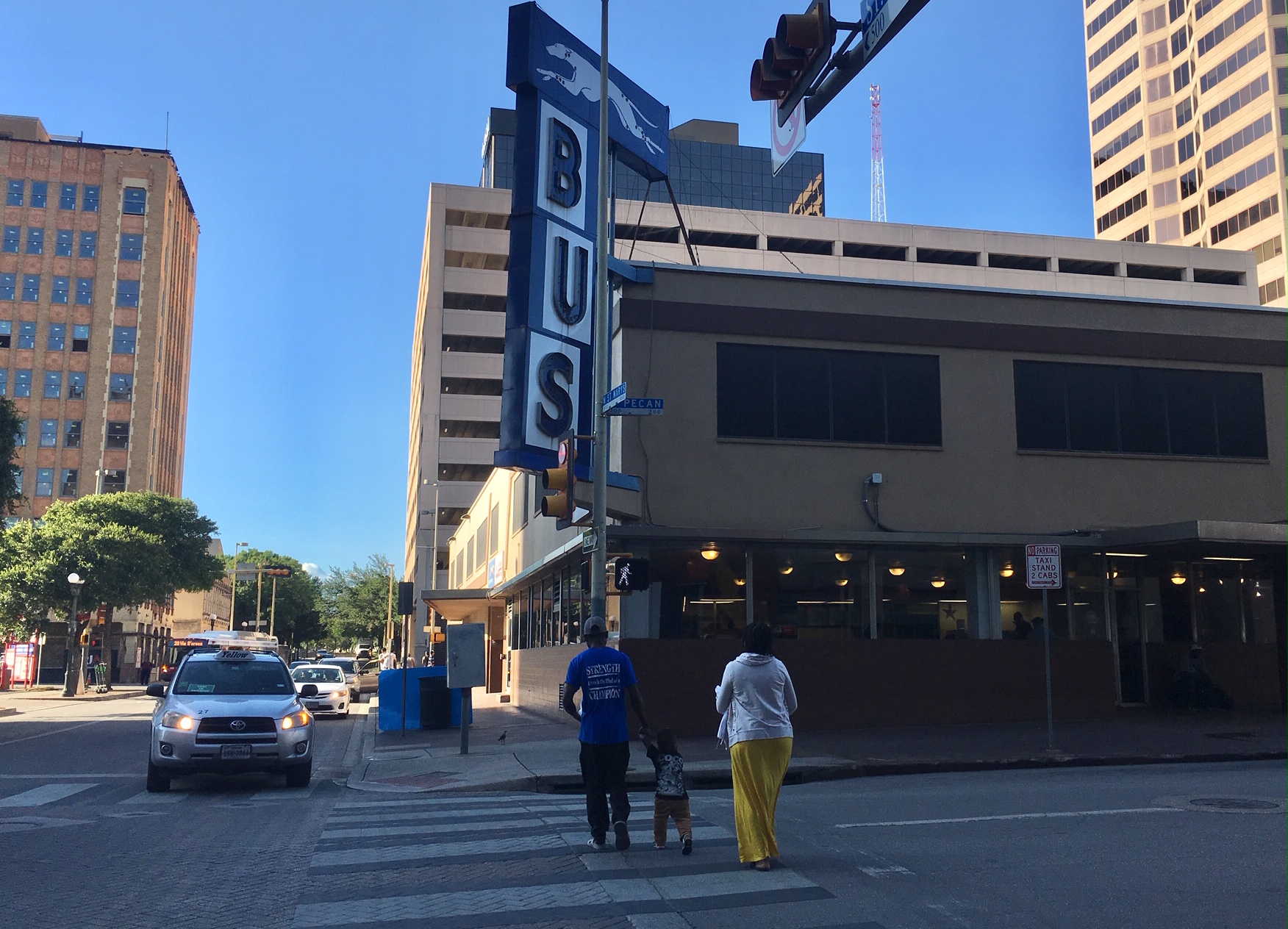SAN ANTONIO, Texas — U.S. authorities in one area of the southern border are apprehending more asylum-seekers from Central African countries than any year on record as hundreds arrive each week, seeking refuge in the United States from an outbreak of war in the region.
Citizens of the Democratic Republic of the Congo, the Republic of the Congo, and Angola are being released by Border Patrol in Eagle Pass, Texas, and surrounding communities. From Eagle Pass, migrants are purchasing bus and van tickets to get to the closest large city, San Antonio, as the Washington Examiner witnessed Monday at bus stations.
Once in San Antonio, migrants can get assistance from the city, which is being supported by local nongovernmental organizations. The public and private sectors have partnered to house, feed, clothe, and transport migrants for medical care, even paying for flights to final destinations across the country.
During the daytime, people stay at the city’s migrant center downtown at 400 N. St. Mary’s St., where the Washington Examiner spoke with some African migrants about their extensive journeys to the United States.

Most traveled to South or Central America, then up to the United States, according to several Homeland Security officials based in Del Rio.
Those entering the country through this route did so because they “were scared the [refugee] process was not going to work or that it’s at a standstill,” said Christina Higgs, Catholic Charities spokeswoman for the San Antonio region. Some worried traveling to or through Europe was “getting really dangerous,” she said.
The interviews were conducted in French. The three men interviewed traveled to the United States on their own or as part of a family. Last names were held for security reasons.
Washington Examiner: What country are you from?
Jacques: Congo.
Boutros: Democratic Republic of Congo.
Felix: Congo.
Washington Examiner: When did you leave your country?
Jacques: December.
Boutros: January.
Felix: Jan. 15.
Washington Examiner: Why did you leave your country?
Jacques: Wars and violence.
Boutros: Violence and crime.
Felix: We have the war. We did not feel safe.
Washington Examiner: How many places did you fly to get to the United States?
Jacques: To Ecuador.
Boutros: Only one [unspecified].
Felix: Ecuador.
Washington Examiner: How did you get from where you flew to the United States?
Jacques: By bus.
Boutros: On foot and by bus sometimes.
Felix: We have crossed over 11 countries during our trip.
Washington Examiner: Have you worked while on your trip here?
Jacques: No.
Boutros: No.
Felix: No, I did not find work during the trip.
Washington Examiner: Do you think it is easier to enter America now than before?
Jacques: It is even more difficult.
Boutros: No.
Felix: No, I heard it’s more difficult before.
Washington Examiner: Did someone help you plan your trip?
Jacques: None.
Boutros: No.
Felix: No.
Washington Examiner: What did you do before leaving your country?
Jacques: Footballer.
Boutros: Study and football.
Washington Examiner: How old are you?
Jacques: 17.
Boutros: 17.
Felix: 17 [and traveled with pregnant partner and toddler].
Washington Examiner: Have you applied for asylum to be a refugee and stay here?
Jacques: Yes.
Boutros: Yes.
Washington Examiner: Do you know how many people in your country also travel to the United States?
Jacques: No.
Boutros: A high number, large group.
Felix: Many people I do not know.
Washington Examiner: Which U.S. city are you traveling to now?
Jacques: New York.
Boutros: New York. … I want to go to Europe, but I don’t have money to get there. I’ve been in San Antonio one week.
Felix: I want to live my dreams.


